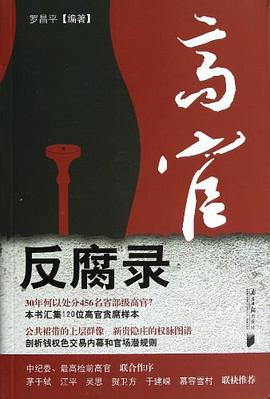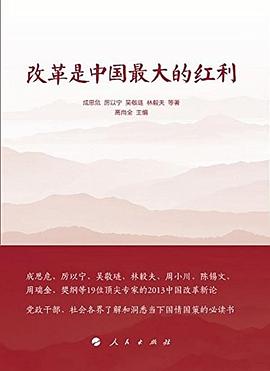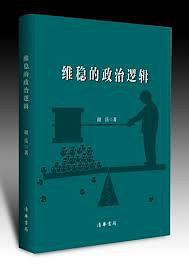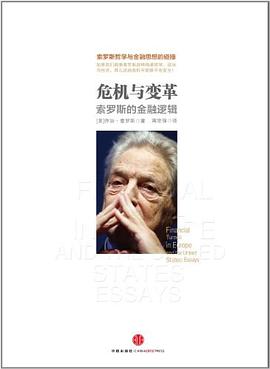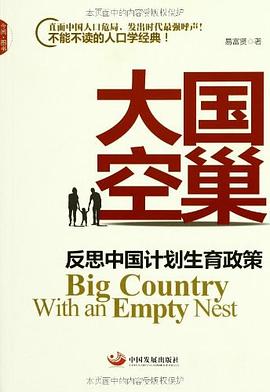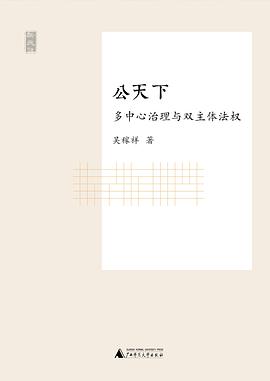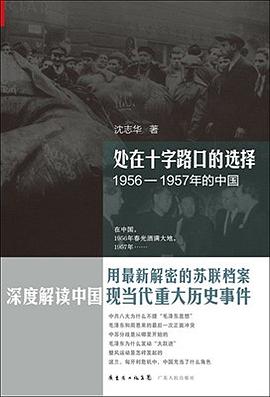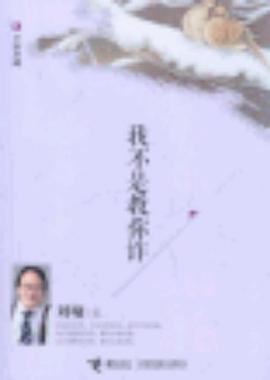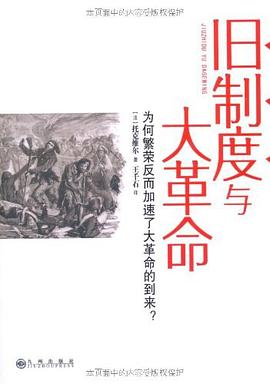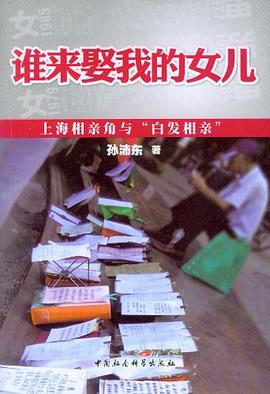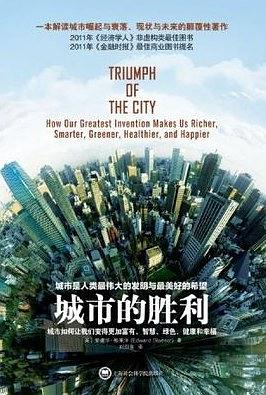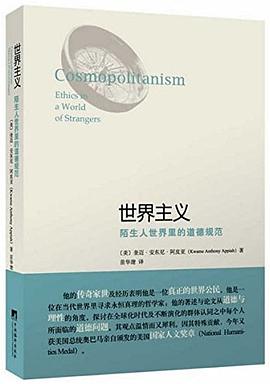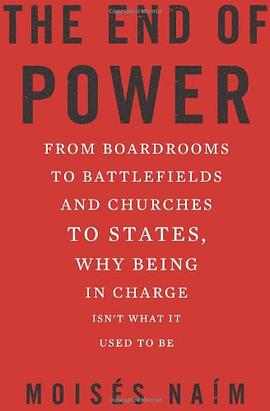

具体描述
We know that power is shifting: From West to East and North to South, from presidential palaces to public squares, from once formidable corporate behemoths to nimble startups and, slowly but surely, from men to women. But power is not merely shifting and dispersing. It is also decaying. Those in power today are more constrained in what they can do with it and more at risk of losing it than ever before.
In "The End of Power," award-winning columnist and former "Foreign Policy" editor Moises Naim illuminates the struggle between once-dominant megaplayers and the new micropowers challenging them in every field of human endeavor. Drawing on provocative, original research, Naim shows how the antiestablishment drive of micropowers can topple tyrants, dislodge monopolies, and open remarkable new opportunities, but it can also lead to chaos and paralysis. Naim deftly covers the seismic changes underway in business, religion, education, within families, and in all matters of war and peace. Examples abound in all walks of life: In 1977, eighty-nine countries were ruled by autocrats while today more than half the world's population lives in democracies. CEO's are more constrained and have shorter tenures than their predecessors. Modern tools of war, cheaper and more accessible, make it possible for groups like Hezbollah to afford their own drones. In the second half of 2010, the top ten hedge funds earned more than the world's largest six banks combined.
Those in power retain it by erecting powerful barriers to keep challengers at bay. Today, insurgent forces dismantle those barriers more quickly and easily than ever, only to find that they themselves become vulnerable in the process. Accessible and captivating, Naim offers a revolutionary look at the inevitable end of power--and how it will change your world.
作者简介
莫伊塞斯•纳伊姆
卡内基国际和平基金会专家、国际知名专栏作家,曾担任《外交政策》杂志主编十余年。在他任职期间,该杂志广受赞誉,三次获得美国国家“卓越杂志奖”,并成为全球具有非凡影响力的关于国际问题的出版物之一。纳伊姆还曾担任委内瑞拉贸易和工业部部长及世界银行执行董事。
纳伊姆著述颇丰,其研究涉及国际经济、全球政治、经济发展及全球化的影响等众多领域。他撰写、编辑了大量图书,其中《谁劫走了全球经济》一书被翻译成14种语言出版,并被《华盛顿邮报》评选为年度最佳图书之一。美国公共广播公司根据该书内容制作的《国家地理》纪录片斩获2009年的艾美奖。
目录信息
读后感
从普京到特朗普,从菲律宾的杜特尔特到土耳其的埃尔多安,甚至还包括印度的莫迪和日本的安倍晋三……近年来众多政治强人崛起。他们个性鲜明、果敢坚毅、目标远大。 因此,一些媒体和学者都在讲“世界进入强人政治时代”。 有人认为强人政治崛起是因为世界动荡不安,有人认为民...
评分Zuckerberg力推这本书无非是不无得意地说我Zuckerberg不只是个技术nerd,还是权力的终结者呢。说穿了非死不可也好,其他的短信工具也罢,无非是把各种臭味相投的人更容易地凑到一块罢了。本来世间的精神病虽多,但分散在正常人中间自生自灭。 现在有了即时通讯工具,一群精神病...
评分在写这本书的评论之前,我先谈谈这几年的一个变化,从09年开始,由于社交网络的真正崛起,微博成为了我获取信息以及认识朋友(当然他们并不认识我)最重要的渠道,几年下来,关注了六百多个好友、发了几千条消息当然也阅读了大量的分享文章,可以说很大程度上微博改变了我,很...
评分终于看完了《权力的终结》这本书,看的有些吃力,文字也不是那么的通俗易懂,也许它是一本专业书籍,也许他的有些观点我实在不能认同。 在本书中,作者一直在为权力的衰退而感到担忧,并提出方案,希望能停止权力的衰退。这一点我不能认同。 为什么现在...
评分从《权力的终结》延伸到其他国外引进的书籍,个人以为,都不适应于中国。不管政治经济方面的。再有就是翻译的成熟程度及删掉一些敏感的内容,够买来看,已经起不到学习思辨的方法了。因为从翻译到删减,已经修正为我们国内著作的思路,给我们预设了思考方式。无论权力的产生,...
用户评价
《权力的终结》这本书,让我对“权力”有了全新的认知。摩伊塞斯·纳伊姆用一种冷静而又深刻的笔触,描绘了权力从集中走向分散的必然趋势。他没有使用耸人听闻的语言,而是通过严谨的分析和丰富的案例,向读者展示了这种转变的深层原因和带来的影响。我尤其被他关于“权力获取的门槛降低”的论述所吸引,过去,想要获得某种程度的影响力,需要经过漫长的学习、积累和政治运作。而现在,借助互联网和社交媒体,普通人也能在很短的时间内聚集起大量的追随者,并产生不容忽视的社会影响力。这种“微权力”的兴起,彻底改变了传统的权力格局,也让世界变得更加不可预测。
评分读完《权力的终结》,我有一种被“解放”的感觉,同时也伴随着一丝丝的警惕。解放是因为,它打破了我对权力的一些刻板印象。我曾经以为权力是高高在上、不可撼动的,但这本书让我看到,权力其实也充满了脆弱和变数。纳伊姆通过大量的历史和现实案例,展现了权力是如何被挑战、被分散、被瓦解的。这种分散化带来的“微权力”效应,意味着即使是最普通的人,也可能在某些领域拥有不容忽视的影响力。但同时,我也警惕于这种权力的分散化带来的潜在混乱。当信息爆炸、意见多元,如何辨别真伪、如何达成共识,成为一个巨大的挑战。这本书就像一面镜子,照出了我们所处时代的复杂性,它让我们看到,权力不再是少数人的游戏,而是正在以一种更加复杂、更加难以预测的方式存在着。
评分《权力的终结》这本书,对于理解当代社会动荡的根源,无疑提供了一个极具价值的视角。摩伊塞斯·纳伊姆用他深厚的学术功底和敏锐的观察力,揭示了权力分散化的全球性趋势,以及由此带来的种种矛盾和挑战。他没有停留在对现象的描述,而是深入分析了权力“难以得到、难以行使、难以维持”的内在逻辑。我尤其对“难以行使”这一部分深有感触,我们经常看到政府和大型机构在面对新的挑战时显得力不从心,他们的决策过程缓慢,并且容易受到各种既得利益的掣肘。而与之相对的,是那些分散的、灵活的“微权力”能够迅速作出反应,甚至能够有效地挑战传统的权威。这种权力结构的转变,不仅影响着国际政治,也深刻地改变着商业竞争和社会运动的形态,让我们每个人都必须重新审视自己在权力格局中的位置。
评分在读《权力的终结》这本书的过程中,我常常感到一种“既熟悉又陌生”的体验。熟悉是因为,书中描绘的权力分散化、信息爆炸、公众参与度提高等现象,是我们日常生活中早已能感受到的。陌生则是因为,纳伊姆的分析将这些碎片化的现象串联起来,揭示了其背后隐藏的深刻逻辑。他让我看到了,过去那种自上而下的、等级森严的权力模式,正在被一种更加扁平化、网络化的新模式所取代。这种取代并非一帆风顺,它带来了效率的提升,也带来了新的混乱和挑战。这本书让我意识到,我们正处于一个权力变革的时代,理解和适应这种变革,是每个人都必须面对的课题。
评分当我看《权力的终结》这本书的时候,我仿佛置身于一个巨大的迷宫,而纳伊姆则是一位经验丰富的向导,他不仅为我指明了迷宫的出口,更重要的是,他让我理解了迷宫是如何形成的。他描绘的权力分散化,不是一个单一的事件,而是一个复杂的多米诺骨牌效应。从技术革新到全球化,再到社会思潮的变迁,这些因素相互作用,共同瓦解着旧有的权力结构。我特别被他关于“易碎性”的描述所吸引,曾经坚不可摧的权力,在信息的洪流和公众的审视下,变得越来越脆弱。这让我想起,很多曾经看似强大的企业或组织,一夜之间就可能陷入危机。这本书让我对权力的本质有了更深刻的认识,它不再是单一的、线性的,而是多元的、动态的,并且充满了不确定性。
评分《权力的终结》这本书,最让我印象深刻的是它对“权力衰退”这一现象的细致描绘。纳伊姆并没有把权力看作是一个静态的概念,而是动态地分析它如何从集中走向分散,又如何在这种分散中产生新的挑战。他用“越来越难以得到、越来越难以行使、越来越难以维持”这三个维度来概括权力的衰退,这三个形容词精准地捕捉到了权力在当下所面临的困境。我特别欣赏他对于“难以得到”的分析,以前,获得权力似乎需要漫长的积累和精心的布局,但现在,只要掌握了信息、或者拥有了某种技术,普通人也能迅速获得某种形式的影响力。而“难以行使”则体现在,即使获得了权力,也常常会因为各种制约而寸步难行,各种利益集团、民意压力,都使得权力变得不再那么自由。至于“难以维持”,这更是当下最直观的感受,曾经牢不可破的统治,如今可能因为一次网络事件而摇摇欲坠。
评分《权力的终结》这本书,在我拿到它的时候,就带着一种莫名的期待,好像握住了一个关于某种必然命运的预言。摩伊塞斯·纳伊姆(Moisés Naím)以一种近乎冷酷的清晰度,拆解了“权力”这个概念,它曾经是坚不可摧的堡垒,是少数人手中绝对的筹码,如今却变得如此零散、易碎,甚至有点滑稽。我特别喜欢他描述的“微权力的兴起”,这种变化不是一夜之间的革命,而是无数细微的裂缝累积而成。他用大量的案例,从政治到商业,从技术到社会运动,生动地展现了这种趋势。你看到的不再是巨头垄断一切,而是无数小型玩家,凭借信息、技术或者独特的社群影响力,也能在某个角落掀起波澜。这种分散化带来的后果,是传统权力结构无法想象的。那些曾经掌握核心资源的机构,比如政府、大型企业,发现自己正面对着前所未有的挑战。他们的决策链条变得冗长而无效,而那些分散的“微权力”却能以惊人的速度做出反应,甚至绕过他们。
评分《权力的终结》这本书,给我的感觉是,它不仅仅是一本关于政治或经济的书,它更像是一部关于人类社会演变史的观察报告。纳伊姆以一种宏观的视角,审视着权力这个古老而又常新的概念,并指出它正在经历一场深刻的“大衰退”。这种衰退不是权力本身的消失,而是其运作方式、形态以及掌握者都在发生着颠覆性的变化。我特别欣赏他对于“透明度”和“问责制”的讨论,这些在过去是遥不可及的概念,如今却成为了限制和塑造权力的重要因素。当信息如此容易被获取,当公众的监督如此便捷,任何试图维持封闭和垄断的权力都显得越来越困难。这种变化,既带来了新的希望,也带来了新的挑战,如何在这种新的权力格局中找到平衡,是摆在我们所有人面前的课题。
评分纳伊姆在《权力的终结》中,对我们所处时代权力运作方式的洞察,简直像是在解剖一个正在缓慢死亡的巨兽。他没有回避权力的分散化带来的混乱和低效,反而深入分析了这种混乱是如何产生的,以及它对我们日常生活产生的深远影响。我记得他举过一个例子,关于信息传播的去中心化,这使得谣言和真相的传播速度几乎一样快,甚至更容易传播。这在某种程度上,让真相的追寻变得更加困难,也让那些试图操纵舆论的人有了新的战场。他并没有给出一个简单的解决方案,而是提供了一个框架,让我们去理解这种前所未有的变化。读这本书的时候,我常常会联想到最近的一些社会事件,那些看似不起眼的集体行动,在互联网的催化下,竟然能对强大的机构产生巨大的压力。这让我意识到,权力的游戏规则正在被重新书写,而我们每个人,都可能是这个新规则的参与者,甚至是受益者或受害者。
评分这本书《权力的终结》就像是一次对全球权力版图的“X光扫描”,其清晰度和穿透力让我感到震撼。纳伊姆并没有简单地宣告“权力已经终结”,而是细致地剖析了权力如何在新的时代背景下,经历着前所未有的蜕变。他提到的“信息时代”是这场权力变革的核心驱动力,信息获取的便利化、传播的去中心化,使得过去那些掌握信息稀缺性就能掌控权力的时代一去不复返。我特别喜欢他关于“零碎化”和“即时性”的论述,这些特质让权力变得更加难以捕捉和预测。过去的权力是集中式的、缓慢的,而现在的权力则呈现出碎片化的、瞬息万变的特征。这使得我们必须摆脱过去的思维定式,去理解和适应这种新的权力运作模式。
评分我觉得是过誉了,但用权力越发分散、政治体制革命势在必行的论点去思考未来,可能对职业规划有些帮助?
评分Zuckerberg掀起的A Year of Books阅读活动的第一本书,分析了权利的历史由来和当今在More, Mobility, and Mentality revolutions下的变革。重点概括在前4章,后面都是在举各个领域的例子。作者Naim逻辑清晰文笔优美,佳作。
评分我觉得是过誉了,但用权力越发分散、政治体制革命势在必行的论点去思考未来,可能对职业规划有些帮助?
评分I can easily relate it to my daily life in Business, while not exactly that the power is ending, it is somehow diminishing, although this book covers a much more comprehensive horizon and structure.
评分并不包含有洞见的见解,文笔还差得很,严格说跟正经论文水准差距很大。
相关图书
本站所有内容均为互联网搜索引擎提供的公开搜索信息,本站不存储任何数据与内容,任何内容与数据均与本站无关,如有需要请联系相关搜索引擎包括但不限于百度,google,bing,sogou 等
© 2026 book.quotespace.org All Rights Reserved. 小美书屋 版权所有

